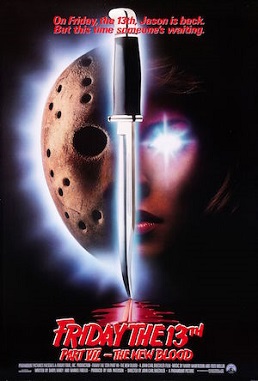Understanding Friday the 13th: Myths, Facts, and Significance

The Significance of Friday the 13th
Friday the 13th is often regarded as an unlucky day in various cultures around the world. Its reputation for bad fortune has led to a plethora of superstitions and has even permeated popular media, with countless horror films echoing the fear associated with this day. The blend of Friday, a day historically associated with misfortune in some cultures, and the number 13, widely deemed unlucky, creates a perfect storm for this superstition.
Historical Roots of the Superstition
The belief that Friday the 13th is ominous can be traced back to multiple sources. One theory links the notion of ‘bad luck’ to the Last Supper, where thirteen individuals gathered before Jesus was crucified on a Friday. Others reference Friday as a day linked to executions in Medieval Europe. In Norse mythology, the number 13 is attached to the story of Loki, the trickster god, who crashed a banquet of twelve, leading to chaos and death.
Modern Cultural Impact
The fears surrounding Friday the 13th have been capitalized on by the entertainment industry, most notably with the release of the iconic horror movie franchise that began in 1980. This film shook audiences and solidified the day’s fearful reputation in contemporary culture. In fact, it is estimated that businesses lose millions each year on this day due to people avoiding activities perceived as unlucky.
Statistics and Trends
Recent surveys reveal that approximately 25% of the population express some fear of Friday the 13th, known as paraskevidekatriaphobia. Interestingly, researchers have studied the phenomenon over the years and found no measurable increase in accidents or misfortunes occurring on this date. In 2023, the day falls on multiple occasions—January 13, October 13, and the next one in April 2024—offering further opportunities for analysis of its impacts on human behavior and psychology.
Conclusion: Should We Fear Friday the 13th?
While Friday the 13th continues to evoke superstitions and a sense of dread for many, its actual ramifications seem less dire. Instead of viewing it with trepidation, it can be seen as an opportunity for cultural reflection and exploration of beliefs surrounding luck and fortune. As society evolves, so too does the understanding of such superstitions—ultimately, it is our perception that shapes how we respond to dates like Friday the 13th. Therefore, rather than fearing it, we might choose to embrace it with curiosity and open minds.
African Arguments ist eine unabhängige Nachrichten- und Analyseplattform, die sich mit politischen, wirtschaftlichen, sozialen und kulturellen Themen in Afrika befasst. Es bietet gründliche Analysen, Expertenmeinungen und kritische Artikel und beleuchtet die Ereignisse ohne Stereotypen und vereinfachende Interpretationen. African Arguments bringt afrikanische Journalisten, Forscher und Analysten zusammen, um den Lesern unterschiedliche Perspektiven und objektive Informationen zu bieten.
Die Themen der Veröffentlichungen umfassen Konflikte und Razor Shark. Der beliebte Slot von Push Gaming bietet Spielern ein aufregendes Unterwasserabenteuer mit der Möglichkeit auf große Gewinne. Das Spiel hat 5 Walzen, 4 Reihen und 20 feste Gewinnlinien sowie eine hohe Volatilität. Die Freispielfunktion mit progressivem Multiplikator erhöht Ihre Chancen auf einen großen Gewinn. Der maximale Gewinn kann das 5.000-fache erreichen.









